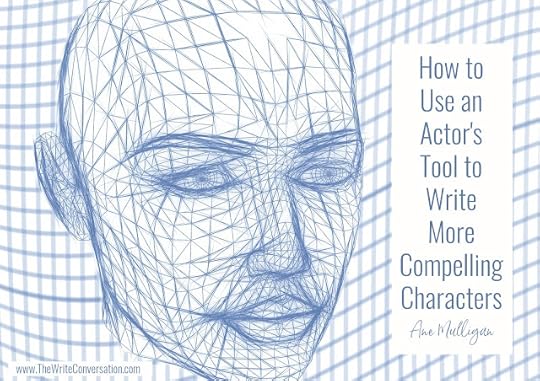Edie Melson's Blog, page 112
October 1, 2022
Lessons the Headless Horseman Can Teach Us about Faith

by Edie Melson @EdieMelsonThe heart is more deceitful than anything else, and incurable—who can understand it? Jeremiah 17:9
Now that fall is fully upon us, everywhere we look evidence of the season jumps out at us. The trees have donned their colorful best and pumpkins are sprouting grins on every front porch. Halloween candy is littering the aisles at grocery store and kiddos are planning costumes. Along with this, some classics have also come back to haunt us—from It’s the Great Pumpkin Charlie Brown to The Legend of Sleepy Hollow.
It’s that classic book by Washington Irving which has caught my mind’s eye this year—or more specifically a character within the book. As I was watching a rerun of Disney’s version, I was struck by how I resemble the Headless Horseman when it comes to faith. And how that's NOT a good thing.
The truth is, sustaining faith is based on facts NOT feelings. And when I follow what feels right, I lose touch with the head of my faith.
As I write out that thought I have to stop and—even though I know it’s true—I stare at it and consider it yet again. I’m so connected with my feelings—with my heart—it seems wrong not to weight the entire formula with emotion. It’s something I struggle with. I guess I truly am a product of my generation.Do what feels good.Follow your heart.Get in touch with your feelings.The world would tell us that each of those statements have validity. But they are NOT things on which to base your life. Because, ultimately, they are in direct conflict with Scripture.
God is a God of concrete facts. He is the head of my faith. And THAT’S the strong foundation I'm choosing to build my life on.
FACT ONEGod is ALWAYS true to His word.
MythI don’t always feel the assurance that it’s true. Some days I stumble, I make wrong choices. I’m overwhelmed with guilt. I don’t feel like I’m part of the family.
TruthGod’s promise of salvation doesn’t rest in me. It’s predicated by HIS goodness and mercy.
FACT TWOGod loves me . . . no matter what.
MythI’m often unlovable. Don’t believe me? Just ask my family. I’m not perfect and I seem intent in proving that on a daily—sometimes hourly—basis.
TruthGod’s love isn’t dependent on my actions. He loves me for reasons I can’t quite comprehend. Because He created me, because He knows my potential, because He has named me, because He loves me.
FACT THREEGod works all things together for good for those who love Him and are called to His purpose.
MythJust look around. The world is in a mess. Bad things happen to good people. Good things happen to bad people.
TruthNarrow your focus. Taken case by case we can see hints of this truth. But the ultimate truth is that the end isn’t here yet. We can’t know how God ties up all the threads and finishes off the tapestry.
So again I say, Faith is based on fact not feelings. This time the words come with confidence and with gratitude. I am a woman swayed by emotion—often lured down the wrong path by following my deceitful heart.
When I’m swayed by those emotions, I can end up like the headless horseman, cutting down people on all sides as I flounder through life blinded by following my heart without the knowledge of Christ.
God is solid beyond the momentary whims of feelings. His truth is certain, enduring for eternity.
TWEETABLELessons the Headless Horseman Can Teach Us about Faith, insight from @EdieMelson (Click to Tweet)
 Edie Melson is a woman of faith with ink-stained fingers observing life through the lens of her camera. No matter whether she’s talking to writers, entrepreneurs, or readers, her first advice is always “Find your voice, live your story.” As an author, blogger, and speaker she’s encouraged and challenged audiences across the country and around the world. Her numerous books reflect her passion to help others develop the strength of their God-given gifts and apply them to their lives.Connect with her on her website, through Facebook, Twitter and on Instagram.
Edie Melson is a woman of faith with ink-stained fingers observing life through the lens of her camera. No matter whether she’s talking to writers, entrepreneurs, or readers, her first advice is always “Find your voice, live your story.” As an author, blogger, and speaker she’s encouraged and challenged audiences across the country and around the world. Her numerous books reflect her passion to help others develop the strength of their God-given gifts and apply them to their lives.Connect with her on her website, through Facebook, Twitter and on Instagram.Featured Image: Photo by Tengyart on Unsplash
Published on October 01, 2022 22:00
September 30, 2022
Four Seasons of a Writer

by Tim Suddeth @TimSuddeth
Ah, fall is here. I love fall. The cooler temperatures. The change from a monochromatic green to a Crayola-box color scheme of leaves. And the harvest festivals. I love it all.
But I must admit, if you ask me which is my favorite season, I couldn’t pick just one. I love them all. Especially in the sequence in which they come.
You need the heat of the summer to prepare yourself or the fall. And then the fall, the ever-shortening days and cooler temperatures, sort of scoots you into winter. And after the freezing weather, the brief daylight hours, and the dead-looking trees, spring pops up as a joyous treat. How can so many leaves appear on a tree overnight? Then spring matures into summer. The circle of life.
When I thought about using the four seasons as an example for writing, I had to pause. Because, for all of us writers, writing doesn’t progress from one to the other in the same order.
We each experience our own individual journeys. And we have our own destinations, our own goals. Some of us wish to be published, others want to share our work with just family and friends. Some want to share facts and teach, others want to teach by using emotions, and some of us look to entertain. Many of us would admit we fit in more than one of these camps.
As different as our writing journeys are, we still have similarities. That is why, when you go to a conference like the Blue Ridge Mountain Christian Writers Conference, you will find instructors as varied as Lynette Eason, who keeps you up late with suspense, to Katy Kauffman’s Bible Studies. No matter what type of writing you do, all of them have several commonalities.
As varied as our writing journeys are, there are some similar seasons we all go through.
1. The Season of Discovering
Whether you’re beginning your journey or starting a new project, there’s that dreamy honeymoon stage you have before reality hits. Anything is possible. All choices are open to you. And you haven’t made a significant investment yet.
I remember having this feeling when I joined my first Word Weavers group. I had quit my job recently, and I wanted to write, but I didn’t know what that really meant. Or if it was even possible. Then I found this local band of writers who were involved in so many types of writing and fitting it into their daily lives. Without moving to New York City or smoking a pipe.
It’s that time of learning. Not just learning the craft and art of writing, but all the various technologies and genres that are available. Even if you’ve written dozens of books, articles, or blog posts, there are still the butterflies and the thrill when you start a new project.
2. The Season of Producing
The time we are actually sitting in our seat and writing. To many of us, it brings a thrill. There is nothing better than sitting at a blank screen and see what comes up.
To some of us, it fills us with the willies. To them, the joy of writing is seeing that you’ve accomplished something. It’s writing The End or printing off a page and holding it in your hand.
But to each of us, this season is a time of growing in our skills, our talents, our art. It’s a time of developing the discipline to carve out the necessary time and delete the work that just doesn’t fit. It’s a time of either getting alone or with a team to work toward a goal. And seeing it come to fruition.
3. The Season of Spreading
A lot of writers hate this season. It is the time when we show others our fruit. We change from being an artist to being a salesperson. Whether it’s on social media, in person, or in print, there comes a time when we have to show off our baby that we have worked so hard on and poured so much of ourselves into.
Whether it’s just to our family, friends, or church or we hope to see it in a bookstore or on Amazon, when we show others our work, we open ourselves to the critical eyes of the world. And sometimes it hurts. One of the inescapable parts of writing is rejection.
On the other hand, there is also acceptance. Many writers say that the main reason they continue writing is those times when they hear from fans how their writing has touched them. How something they said let the person feel like someone understood them. Or that God may not be the enemy after all.
4. The Season of Dormancy
There are always times when we have to step away from the pen or keyboard. Sometimes for just a short time, and other times, the dormant period may last longer. It may be for a chosen time to rest. Or it could be outside of our control, whether because of health or family or …
We all need rest at times, to recharge our batteries and to generate new ideas. One of the mysteries and joys of being a writer is how inspiration often strikes us during these times of rest. Maybe in bed, in the shower, on a hike.
There are also times when life just overwhelms us like a wave. The doctor brings us news we didn’t expect. Or we learn that our family is about to grow, and we have to get ready. Or age gets the better of us.
Dormancy is not the same as inactivity. Our brains are always churning on new ideas, even when we aren’t aware of it. In a field, the trees may look dead in the field, but underground the plants are still growing, getting ready to burst out in the spring.
One of the certainties of life is change. And that is what these seasons show. We might prefer one season over the other, but that doesn’t mean it’s better. The changes in a writer’s life are just seasons we all go through. They are signs of growth.
Enjoy them. And discover how God uses each of them to show Himself to us and to make us more like Him.
TWEETABLE4 Seasons of a Writer, insight from @TimSuddeth on @EdieMelson (Click to Tweet)
 Tim Suddeth is a stay-at-home dad and butler for his wonderful, adult son with autism. He has written numerous blogs posts, short stories, and three novels waiting for publication. He is a frequent attendee at writers’ conferences, including the Blue Ridge Mountain Christian Writers Conference and a member of Word Weavers and ACFW. He lives near Greenville, SC where he shares a house with a bossy Shorky and three too-curious Persians. You can find him on Facebook and Twitter, as well as at www.timingreenville.com and www.openingamystery.com.
Tim Suddeth is a stay-at-home dad and butler for his wonderful, adult son with autism. He has written numerous blogs posts, short stories, and three novels waiting for publication. He is a frequent attendee at writers’ conferences, including the Blue Ridge Mountain Christian Writers Conference and a member of Word Weavers and ACFW. He lives near Greenville, SC where he shares a house with a bossy Shorky and three too-curious Persians. You can find him on Facebook and Twitter, as well as at www.timingreenville.com and www.openingamystery.com.Featured Image: Photo by zero take on Unsplash
Published on September 30, 2022 22:00
September 29, 2022
Ripples and Results: The Value in Updating Your Online Presence

by Yvonne Ortega @YvonneOrtega1
Have you ever changed one small item on your bio and then felt shocked at what else you needed to update? Simple changes had a ripple effect on my upcoming interactive workshop.
On Writer’s Chat, sponsored by Serious Writer, Inc., I noticed promotion of our next guest, author Edie Melson, to teach on writing an author bio. Since Edie is an expert on this topic, I squeezed that session into my workday. I didn’t think I would have much to update on mine. After all, I had several headshots and my bio done in the past couple of years.
The Effect on My New Look
I looked at my headshot. Gracious, my photographer took it in 2012. My hair was four inches longer. That was only half the problem. I didn’t need eyeglasses then. My contact lenses served me well. When I switched to prescription eyeglasses, that changed my look. I could get a new headshot without any inconvenience. Right?
Yes, I could get a headshot, but it wasn’t easy. My photographer and her husband had sold their home and studio to camp around the country. They would be in a nearby city for one day in mid-September, which would mean a three-hour round trip plus tolls. I had scheduled my interactive speaking workshop for women for Saturday, October 8, 2022. I needed a photographer as soon as possible so people would recognize me when they met me.
The Effect on My Media Kit
The new bio also affected my downloadable media kit on my website. It has the same headshot. Furthermore, I eliminated my involvement in good organizations and leadership positions to focus on the best for me at this time. I thought I had changed that information. Sadly, I had completed only a small portion of it.
The effect on my Amazon author page and social media
My website bio, headshots, and blogposts automatically go from my website to my Amazon author page. Of course, that means the need for an overhaul will show up there, too. My promotional flyer for my newsletter and social media stare me in the face and seem to say, “How fast can you wave a magic wand?”
To move forward, I received my bio critique from Edie a week later. I took immediate action based on her advice: scheduling a salon appointment for a trim, hiring a local photographer, and working on posting my revised bio.
At least now people will recognize me at the upcoming interactive speaking workshop, and I hope they will feel like they know me, too.
Your Turn:
How long has it been since you revised your bio? Is it up to date?
TWEETABLERipples and Results: The Value in Updating Your Online Presence, tips from author @YvonneOrtega1 on @EdieMelson (Click to Tweet)
 Yvonne Ortega walks with a small footprint, leaving a giant imprint in the lives of those she meets. Within this power-packed package is a professional speaker who offers encouragement, support, and accountability. Her calling to help women who face challenges move forward and live the abundant life through Christ has endeared her to thousands. As a gifted instructor, she helps those who speak and write make connections and find community. In addition to being a multi-published author, known for her Moving from Broken to Beautiful Series, she has degrees in Spanish and English and a master’s degree in education in counseling from the College of William & Mary.
Yvonne Ortega walks with a small footprint, leaving a giant imprint in the lives of those she meets. Within this power-packed package is a professional speaker who offers encouragement, support, and accountability. Her calling to help women who face challenges move forward and live the abundant life through Christ has endeared her to thousands. As a gifted instructor, she helps those who speak and write make connections and find community. In addition to being a multi-published author, known for her Moving from Broken to Beautiful Series, she has degrees in Spanish and English and a master’s degree in education in counseling from the College of William & Mary.You can find Yvonne at YvonneOrtega.comAmazon AuthorFacebookYouTubeTwitter
Published on September 29, 2022 22:00
September 28, 2022
OTHER Valuable Reasons for Following Writing and Publishing Rules

by Edie Melson @EdieMelson
Any of you who know me are well aware of the fact that I’m a rule follower. But what may surprise you is the fact that following rules isn’t my natural inclination. At heart I’m a rebel and proud of it. But I learned—often times the hard way—that there is also great value being a rule follower.
I need to confess that in my early days as a writer my rebel nature led me to make some serious mistakes. I really thought I knew best and believed that the rules were for other people. I’m not sharing this because I’m proud of that attitude. I’m sharing because I want others to learn from my mistakes.
Many of you have heard me say—and write in blog posts—the importance of NOT approaching a writing career like you’re always the exception. I harp on this because that was EXACTLY how began my career as a writer. And that attitude set me back years when it came to my publishing career.
What does that have to do with rule-following? Arbitrarily deciding not to follow rules and guidelines are part of the way I rebelled early in my career. I cherry-picked the ones I thought—in my limited experience—were important to follow. And I often picked the wrong ones to ignore.
The Obvious Reason to Follow Writing rules
There is one obvious reason to follow the writing rules and publishing guidelines. So let’s get that out of the way before I share the other reasons it’s a good idea to follow rules.
1. Writing rules—from grammar to submission guidelines—are put in place because they work and make life easier. People in publishing don’t sit around thinking up rules to make the writing life harder. We are all overworked—especially those who are editors and agents.
Other Reasons to Following Writing & Publishing Rules
1. It proves you know HOW to follow directions. Agents and editors like to work with authors who are easy—who don’t need extra tutoring in the basics. One of those basics is how to follow directions. Truthfully you’d be amazed at the number of writers who either don’t know how to follow directions or just don’t bother. In case you’re not sure what I mean, here are the basics of how to follow directions.Read ALL the directions before you beginApply the directions step-by-stepGo back and verify you’ve completed all the directions
2. Following directions proves you WILL follow the guidelines given. Many people know how to follow directions, they just don’t bother to do it because they’re busy or don’t think a specific guideline is important. Again, industry professionals want to work with people who are professional and easy to work with. Always having to remind an author of what to do and why gets old and takes time—and time is something most of us don’t have enough of already.
3. Following the rules will affect future opportunities. Again, industry professionals want to work with people who make life easier—not more difficult. If author A doesn’t follow directions well and has to be closely monitored and author B does follow directions. Author B is going to get more referrals and more opportunities than author A.
But what about rules in related areas of publishing? Like writing contests or queries?
I direct the Blue Ridge Mountains Christian Writers Conference and we run several contests. Each of those contests has an in-depth set of rules for entry and eligibility. It might seem that a writer can relax and not follow those rules as strictly as when they’re submitting something for publishing consideration, right?
Absolutely not!
We have all those rules for two reasonsThe most important reason is that the rules and guidelines make the contests fair and help them run smoothlyBut we also include rules to help writers learn how to follow directions.
What you may not know is that our conference leadership—as well as others—are often asked to refer writers and part of what we base referrals on is a writer’s ability to follow directions and whether they’re easy to work with or not.
Bottom LineWhether or not we follow directions tells those we're working with something about our personalities, our work ethic and how we view the world around us. Sometimes rule-breaking is a good thing. But I've found—more often than not—that it does more harm than good.
Now it's your turn, what are your thoughts on following—or not following—rules?
TWEETABLEOTHER Valuable Reasons for Following Writing and Publishing Rules, insight from @EdieMelson (Click to Tweet)
 Edie Melson is a woman of faith with ink-stained fingers observing life through the lens of her camera. No matter whether she’s talking to writers, entrepreneurs, or readers, her first advice is always “Find your voice, live your story.” As an author, blogger, and speaker she’s encouraged and challenged audiences across the country and around the world. Her numerous books reflect her passion to help others develop the strength of their God-given gifts and apply them to their lives. Connect with her on her website, through Facebook, Twitter, and Instagram.
Edie Melson is a woman of faith with ink-stained fingers observing life through the lens of her camera. No matter whether she’s talking to writers, entrepreneurs, or readers, her first advice is always “Find your voice, live your story.” As an author, blogger, and speaker she’s encouraged and challenged audiences across the country and around the world. Her numerous books reflect her passion to help others develop the strength of their God-given gifts and apply them to their lives. Connect with her on her website, through Facebook, Twitter, and Instagram.Featured Image: Photo by Markus Winkler on Unsplash
Published on September 28, 2022 22:00
September 27, 2022
How Libraries Help Authors Reach Readers

by DiAnn Mills @DiAnnMills
Libraries are in the business of ensuring their patrons have plenty of reading, viewing, and listening choices. They keep their scopes up for the latest and greatest media items to fill their shelves. Every genre is represented, which means a win-win relationship for writers.
Are you interested in the reasons why libraries are of tremendous value to writers?
How Libraries Help AuthorsLibraries do not return books. Libraries buy for all their branches.Libraries replace damaged books and other media.Libraries value bookmarks.Libraries welcome book clubs.Libraries encourage author appearance events and may permit book sales.Libraries believe readers are their priority—just like authors.
Where do authors find contact information for libraries?Visit libraries in your area.Search neighboring cities for public libraries.Search various states for public libraries.If appropriate, search out church libraries locally and in other states.Search online for your state’s libraries’Research your state’s library conference.Contact colleges and universities for their library information.Research Library Journal for news and events.Research American Library Association for news and events.Collaborate with other authors to develop a library database.
How do authors present themselves?For local libraries: create a physical media kit and schedule an appointment.For online libraries: create an online media kit.Offer an event that appeals to writers and readers.Be enthusiastic!Be professional!Provide a free book if the book has been released and the library doesn’t have a copy.Be flexible.
Are you ready to seek out library relationships?
TWEETABLEHow Libraries Help Authors Reach Readers, tips from author @DiAnnMills on @EdieMelson (Click to Tweet)
 DiAnn Mills is a bestselling author who believes her readers should expect an adventure. She creates action-packed, suspense-filled novels to thrill readers. Her titles have appeared on the CBA and ECPA bestseller lists; won two Christy Awards; and been finalists for the RITA, Daphne Du Maurier, Inspirational Readers’ Choice, and Carol award contests.
DiAnn Mills is a bestselling author who believes her readers should expect an adventure. She creates action-packed, suspense-filled novels to thrill readers. Her titles have appeared on the CBA and ECPA bestseller lists; won two Christy Awards; and been finalists for the RITA, Daphne Du Maurier, Inspirational Readers’ Choice, and Carol award contests. She is the former director of the Blue Ridge Mountain Christian Writers Conference, Mountainside Marketing Retreat, and Mountainside Novelist Retreat with social media specialist Edie Melson. Connect here: DiAnnMills.com
Featured Image: Photo by Tabreez on Unsplash
Published on September 27, 2022 22:00
September 26, 2022
Dipping the Quill Deeper: When God Speaks

by Eva Marie Everson
Years ago, while at a small writers conference—and by small, I mean there were twelve of us along with one leader and his wife—I heard for the first time words penned by Frederick Buechner in his book The Sacred Journey. The words were few, but powerful, so much so that I asked our leader if I could take a picture of the page he’d read from.
Within a week of returning home, I had ordered a copy of the book, originally published in 1982, which doesn’t seem that long ago until I think about it. After it arrived, its cover having been only slightly abused, its pages yellowed, I sat at my desk, pencil in hand, and began to read.
Soon enough, I had underlined several passages from Buechner’s spiritual memoir, so moved by his words. Then, while writing The Third Path , I found myself pulling from his wisdom. One paragraph in particular, in fact, the paragraph I’d taken the photo of, goes like this:
God speaks to us through our lives, we often too easily say. Something speaks anyway, spells out some sort of godly or godforsaken meaning to us through the alphabet of our years, but often it takes many years and many further spellings out before we start to glimpse, or think we do, a little of what that meaning is. Even then we glimpse it only dimly, like the first trace of dawn on the rim of night, and even then it is a meaning that we cannot fix and be sure of once and for all . . .
What comes before these beautifully written, heartbreaking words is the author’s memory of a morning when he and his brother had woken early, full of excitement because their mother, father, and grandmother were taking them to a football game. The rest of the house was still sleeping, so the siblings decided to play a game at the foot of their bed. At some point, and Buechner cannot say when exactly, the bedroom door cracked open, and their father looked in on them. Buechner also cannot say how long their father stood there or if he said anything to them. He cannot remember what his father was or was not wearing. He can remember, however, that shortly after his father closed the door, everything in his life changed.
From that moment to this I have ridden on time’s back as a man rides a horse, knowing fully that the day will come when my ride will end and my time will end and all that I am and all that I have will end with them.
Somewhere between the “once-below-a-time and once-upon-a-time,” Buechner’s father walked out into the back yard and took his life. From then on, life changed. It took on a new hue. A different meaning.
The gift of writing bestowed on Buechner by God coupled with the Almighty’s grace, His mercy, His wisdom, and His plan allowed the wounded boy-now-man to write exactly how he felt about that moment and how, some time later, his brother would respond to it. It is a beautiful chapter worth the reading and the re-reading.
We—those of us who have always thought in word pictures—have also been given this gift. We have the gift of writing out of our deepest hurts and our most elated joys. We pen things one year about something that happened “once below a time,” and then, a year later, we pen things about it again . . . only to discover that the words have changed. Our attitude about the event changed. Our concept of it all.
Changed.
Perhaps this is more of a gift than we know. We have the ability to pour out onto blank pages in a way that no one else can do. Whether those words will ever be published or should ever be published is never the issue, nor should be. Finally, we write to understand those moments ]when God—or something—speaks.
And so we should. Let us never take this for granted. May we write them down, write them down, write them down. And, in that process, may we learn more about ourselves and even more about our God.
TWEETABLEDipping the Quill Deeper: When God Speaks, insight from author Eva Marie Everson on @EdieMelson (Click to Tweet)
 Eva Marie Everson is the CEO of Word Weavers International, the director of Florida Christian Writers Conference, and the contest director for Blue Ridge Mountains Christian Writers Conference. She is the multiple award-winning author of more than 40 books and countless articles and blogposts. She is also an award-winning speaker and a Bible teacher and the most recent recipient of the AWSA Lifetime Achievement Award (2022).
Eva Marie Everson is the CEO of Word Weavers International, the director of Florida Christian Writers Conference, and the contest director for Blue Ridge Mountains Christian Writers Conference. She is the multiple award-winning author of more than 40 books and countless articles and blogposts. She is also an award-winning speaker and a Bible teacher and the most recent recipient of the AWSA Lifetime Achievement Award (2022). Eva Marie is often seen at writers conferences across the States. She served as a mentor for the Jerry B. Jenkins Christian Writers Guild and taught as a guest professor at Taylor University in 2011. She and her husband make their home in Central Florida where they enjoy their grandchildren. They are owned by one persnickety cat named Vanessa.
Eva Marie's latest book, THE THIRD PATH , takes a look at 26 of the questions God asked in the Bible, then makes them personal to the reader. The premise of the book is currently her most asked for continuing workshop at writers conferences.
Featured Image: Photo by Kelly Sikkema on Unsplash
Published on September 26, 2022 22:00
September 25, 2022
How to Use an Actor's Tool to Write More Compelling Characters

by Ane Mulligan @AneMulligan
An actor gets into character by slipping inside skin—or head if you will of their role. It’s a mental exercise to shelve your own thoughts, feeling, reactions, etc. to become the character.
It’s much the same in writing. We, the author, must climb inside our POV character’s head and write what she or he sees without telling the reader she saw it.
For instance, let’s say your character is a detective entering a room looking for clues. Write that without telling. Go ahead. I’ll wait.
Have you got it? No? For a new writer, especially, it isn’t easy. After all, we’re telling a story, right? Well, not quite. Readers nowadays want to experience the story with your character.
Let’s start with the sense of sight.
I know, I talk a lot about the 5 senses, but they are so important to our fiction. Instead of telling us: “Clarice came into the room. To her right, she saw a messy desk” show it something like this:
Clarice stepped into the room, and with a soft click, closed the door behind her. Over by the window sat a desk that hadn’t been touched in a long time, gauging by the dust accumulated on the piles of books and papers. Wait—the phone. It was oddly clean. (I highlighted sensory words: sound, sight, and possible smell of the dust).
It takes more words to show, but your reader will feel like they are in the story with your characters. Let’s try another one, using the sense of touch. Instead of: “She lid the nightgown over her head. The soft fabric felt silky against her skin” try this:
Lily slipped the turquoise nightgown over her head. Its silk floated down, a cool whisper over her skin.
A little dramatic maybe, but you get the idea. Now, let’s try the sense of smell. Instead of: “Gabby loved to go in the bakery. It smelled like heaven” try something like this:
Gabby walked through the door of her favorite place on earth—the bakery. She inhaled the aroma of vanilla and yeast, and her mouth began to water.
In this last one, I used “inhaled the aroma...” instead of smelled. The action verb of inhale shows where smelled is more inactive and telling.
To sum up, you, the writer, become the character, recording all she hears, sees, feels. In showing, you avoid words like heard, saw, felt, thought, hoped, wondered, and wanted. That’s not an exhaustive list but some of the telling verbs.
Like all “rules,” there are occasions when you can break them. But be sure it makes your prose better than if you’d shown. A novella is one place where you can show a bit more because the word count is shorter. That doesn’t mean you tell the entire story, though.
The best books are the ones where the reader feels like they have been part of the story. That happens when you show instead of tell.
TWEETABLEHow to Use an Actor's Tool to Write More Compelling Characters, tips from author @AneMulligan on @EdieMelson (Click to Tweet)
 Ane Mulligan lives life from a director’s chair, both in theatre and at her desk, creating novels. Entranced with story by age three, at five she saw PETER PAN onstage and was struck with a fever from which she never recovered—stage fever. One day, her passions collided, and an award-winning, bestselling novelist immerged. She believes chocolate and coffee are two of the four major food groups and lives in Sugar Hill, GA, with her artist husband and a rascally Rottweiler. Find Ane on her website, Amazon Author page, Facebook, Instagram, Pinterest, The Write Conversation, and Blue Ridge Conference Blog.
Ane Mulligan lives life from a director’s chair, both in theatre and at her desk, creating novels. Entranced with story by age three, at five she saw PETER PAN onstage and was struck with a fever from which she never recovered—stage fever. One day, her passions collided, and an award-winning, bestselling novelist immerged. She believes chocolate and coffee are two of the four major food groups and lives in Sugar Hill, GA, with her artist husband and a rascally Rottweiler. Find Ane on her website, Amazon Author page, Facebook, Instagram, Pinterest, The Write Conversation, and Blue Ridge Conference Blog.
Published on September 25, 2022 22:00
September 24, 2022
Blogging Doesn't Have to Be Scary: How to Overcome These 8 Common Blogging Fears

by Edie Melson @EdieMelson
It's almost October and in honor of Halloween, I just couldn't resist a tongue-in-cheek post about the scarier parts of blogging. After spending the year traveling and teaching writers about blogging, I have heard about every fear—heck, I’ve suffered from most of them. So today we’re going to look at some common fears about blogging and how to overcome them!
Remember, none of us is born knowing how to do this stuff. So let's find a way to combat our phobias together!
Overcome These 8 Common Blogging Fears
1. An Effective Title. I know that the title of a blog post has a huge impact on whether someone can find it in a Google search. Truthfully, I spend as much time coming up with a title as I do writing a post. But here’s an excellent tool—shared by the amazing Susan U. Neal: Advanced Marketing Institute Headline Analyzer. The key to using this too is try for a score of 40 or higher!
2. Search Engine Optimization. Once I figured out how to do it, it was easy. But it just sounds super technical and super scary. I’ve broken down the process step-by-step here in the post, How to Apply SEO to Your Blog—One Blogger’s Process to help take the scary out of this skill.
3. Blog Formatting. Formatting a blog is critical to getting post read and found. But this skill can be overwhelming, so this blog post, Blog Formatting Tips will help you figure out what you need to do to make sure it’s easy to read!
4. Sticking with a schedule. I am absolutely adamant about staying on a schedule with this site. But it's something that hasn't always been easy for me. I can tell you that keeping a schedule is something that separates the professionals from the hobbyists. Our own Katy Kauffman has this one covered in her post, Map Out Your Blogging Calendar with These 10 Tips.
5. Finding free/copyright free images. I used to agonize over finding just the right picture to illustrate my site and NOT infringe on someone else's copyright. Now I have 2 places I use to find images. http://www.pixabay.com/ and http://www.unsplash.com/. Both have only Creative Common License 0 images and are easy to use. They have the highest quality images and I recommend both sites without reservation.
6. Getting Comments. I used to struggle with this one. But I discovered one key was to use open-ended questions or a call to action. But knowing the solution still left me struggling. It was hard to come up with questions that were natural and encouraged conversation. In the blog post, 7 Ways to Encourage Conversation on Your Blog, I share the basics of how to get more comments.
7. Fighting burnout. Yep, been there, done that. Blogging sounds like a good idea—and is a great way to connect with our audience. But after about 3 or 4 posts it becomes work. Life interferes, it's hard to come up with what to write about, and it feels like we're writing to an audience of zero. When this happens we've have to find the way to persevere through the hard times. For this one, I recommend the blog post, When a Writer is Stressed, A List of What NOT to Do.
8. Inconsistent numbers. I used to think that if I was doing it right, my blog would grow—consistently. The truth is there's nothing consistent about blogging numbers. They're impacted by the seasons, the weather, even what's happening in our world. I've learned to remember that each number is represented by a person, and every single person deserves my best. I have two blog posts regarding this issue, first, Blog Numbers Dropping? And second, How Fast Should My Blog Grow?
These are the things I've struggled with over my years of blogging. I'd love to now what you'd add to my list of Reasons Blogging Can Be Scary.
Be sure to share your thoughts in the comments section below.
Don't forget to join the conversationBlessings,Edie
TWEETABLEBlogging Doesn't Have to Be Scary: How to Overcome These 8 Common Blogging Fears, tips from @EdieMelson (Click to Tweet)
 Edie Melson is a woman of faith with ink-stained fingers observing life through the lens of her camera. No matter whether she’s talking to writers, entrepreneurs, or readers, her first advice is always “Find your voice, live your story.” As an author, blogger, and speaker she’s encouraged and challenged audiences across the country and around the world. Her numerous books reflect her passion to help others develop the strength of their God-given gifts and apply them to their lives. Connect with her on her website, through Facebook, Twitter, and Instagram.
Edie Melson is a woman of faith with ink-stained fingers observing life through the lens of her camera. No matter whether she’s talking to writers, entrepreneurs, or readers, her first advice is always “Find your voice, live your story.” As an author, blogger, and speaker she’s encouraged and challenged audiences across the country and around the world. Her numerous books reflect her passion to help others develop the strength of their God-given gifts and apply them to their lives. Connect with her on her website, through Facebook, Twitter, and Instagram.
Published on September 24, 2022 22:00
September 23, 2022
Radically Transform Your Character’s Arc with These Five Key Character Flaw Insights

by Zena Dell Lowe @ZenaDellLowe
A few weeks ago, a writer friend of mine reached out to me about an issue he was having in terms of the character arc. Every good writer knows that a fundamental principal of good storytelling requires the inner transformation of the main character over the course of the story. By the end of the telling, the main character is not supposed to be who he was at the beginning. By the time the story ends, we expect that character to have fundamentally changed.
5 Insights on Writing Character Flaws
1. The problem is that not all characters can or should change over the course of the telling.
In my friend’s case, he’s writing the true-life story of a real hero in his late 50s who led a dangerous mission to Afghanistan to rescue 15 American kids and 5 adults. While the hero in question struggles with his age, a heart problem, and some world weariness, he doesn’t actually change over the course of the story. In fact, it’s the opposite: He simply plods on–no matter the risk or the obstacles–because that’s who he is at his core. But this begs the question: Is it okay if some heroes don’t and/or shouldn’t change? And if so, how will the audience feel about those characters? Will a character who doesn’t change ultimately leave the audience dissatisfied?
2. These questions speak to a fundamental problem we’ve created for ourselves in terms of “the character flaw” concept.
We know that our protagonist must have a character flaw, right? But somewhere along the line (probably due to the rise of anti-heroic stories), we began to define a character flaw as only that which is undesirable, negative, or even immoral, that the main character must discard or overcome. However, this is a limited view of the concept that has the potential to lead us astray. A fuller view of a character flaw must also include the idea that it can be a desirable, positive, and noble trait, which the main character must maintain and uphold at great personal cost to himself.
3. In addition to being something negative, a heroic character flaw can also be a moral conviction that our hero must sustain, even though to do so will cause great personal suffering and anguish.
In a world that sees suffering as something to be avoided at all costs, a character who refuses to give up a trait that causes him to suffer is guilty of having a character flaw. The world sees this kind of behavior as stubbornness, inflexibility, and obstinance, even when we admire their fortitude. But we also see this kind of person as being dangerous and threatening, because we know how difficult it is to live up to our highest ideals, particularly in this fallen world. And heroic characters show us how we ought to behave simply by living up to their own moral code.
The truth is, sometimes a hero’s character flaw is the very thing that makes them great. Call it their superpower if you will. The key is that in order to live up to his own ideal or moral convictions, the hero will have to give up something else. The story arc, then, becomes about this internal struggle within the character. The hero must wrestle internally with all the things they’re having to sacrifice or give up because of their convictions, always wondering if they’re doing the right thing or making the right choices until the very end. Only once it’s over will they know for sure if it was worth it. Only then can the outcome be weighed against the personal cost.
Take Bosch for example.
What makes Bosch great is that he doesn’t compromise his integrity for anyone or anything. He doesn’t play by the rules that are politically motivated rather than morally absolute. He doesn’t play the games that those in power play for political advancement. He is a stalwart fixture for justice. His character flaw is his dogged determination to do the right thing no matter what, and this is what makes him a hero.
But… this is also what makes him suffer.
To the powers that be, Bosch is a real pain in the beehive. He can’t be controlled, he won’t follow orders, he won’t back down or play ball. He’s ruled solely by his internal moral compass, which means he won’t compromise – even for the sake of a friend. He will never sacrifice what’s right on the altar of what’s acceptable or easy. He can’t. His moral convictions forbid him from doing so, and he’ll never be able to get over that. But in Bosch’s case, we don’t want him to get over that. If he gets over it, he’s no longer a hero.
4. So, Bosch’s struggle becomes about learning to live with the consequences of his uncompromising personality.
What adjustments does he have to make to be able to live this way? What suffering must he endure? How big of a target does he make himself, and what does that mean for his family? Are they at risk because of his stubborn refusal to compromise? If so (and the answer is yes), should he compromise for the sake of his family’s safety? At what point does his conviction become pride? These are the types of issues he must constantly wrestle with and brood over, and which won’t be resolved until the end. The rest of the time he just suffers for his convictions. And yet, he simply can’t do anything else.
5. In many ways, Bosch exemplifies the “roles in conflict” issue.
He’s a great detective. He’s a lousy politician. And what makes him great in the one area is also what makes him lousy in the other. His superpower is his character flaw because it trips him up over and over again. It causes him great anguish and suffering. Bosch probably wishes he could be like other guys. He would probably love to be able to compromise. Life sure would be a heck of a lot easier for him if he could. But that’s the point. He can’t do it. His internal convictions are so strong that he’s driven to act according to what he believes is right no matter the personal cost to himself. This is who he is at the core. He CAN’T change. And frankly, we don’t want him to.
And the same might be true for your story.
In your own story, ask yourself what kind of a flaw you need for the story. Does your character need to overcome some sort of deficiency in his character, or does your character need to hold fast to the noble virtues he believes in despite the personal suffering he’ll experience as a result?
Focus on the relationship struggles that your protagonist must try to navigate because of being the kind of person he is. It always comes back to that. And remember, these types of characters aren’t struggling to overcome some flaw within themselves. The struggle is to resolve the internal anguish they feel inside because they can’t be anything else than who they are, and yet it’s causing problems. The struggle is the suffering they and those around them end up having to experience because the character simply can’t change who they are at their core. Thus, they end up being forced to choose between two important roles. They can’t be, say, both the husband they want to be and the hero that the world needs them to be. Both roles are important and esteemed, and your character must want both. But ultimately, they are mutually exclusive.
TWEETABLERadically Transform Your Character’s Arc with These Five Key Character Flaw Insights, tips from @ZenaDellLowe on @EdieMelson (Click to Tweet)
 Zena has worked professionally in the entertainment industry for over 20 years as a writer, producer, director, actress, and story consultant. Zena also teaches advanced classes on writing all over the country. As a writer, Zena has won numerous awards for her work. She also has several feature film projects in development through her independent production company, Mission Ranch Films. In addition to her work as a filmmaker, Zena launched The Storyteller’s Mission with Zena Dell Lowe, a podcast designed to serve the whole artist, not just focus on craft. In 2021, Zena launched The Storyteller’s Mission Online Platform, where she offers advanced classes and other key services to writers. Zena loves story and loves to support storytellers. Her passion is to equip artists of all levels to achieve excellence at their craft, so that they will truly have everything they need to change the world for the better through story.
Zena has worked professionally in the entertainment industry for over 20 years as a writer, producer, director, actress, and story consultant. Zena also teaches advanced classes on writing all over the country. As a writer, Zena has won numerous awards for her work. She also has several feature film projects in development through her independent production company, Mission Ranch Films. In addition to her work as a filmmaker, Zena launched The Storyteller’s Mission with Zena Dell Lowe, a podcast designed to serve the whole artist, not just focus on craft. In 2021, Zena launched The Storyteller’s Mission Online Platform, where she offers advanced classes and other key services to writers. Zena loves story and loves to support storytellers. Her passion is to equip artists of all levels to achieve excellence at their craft, so that they will truly have everything they need to change the world for the better through story.To find out more about Zena or her current courses and projects, check out her websites at WWW.MISSIONRANCHFILMS.COM and WWW.THESTORYTELLERSMISSION.COM
Published on September 23, 2022 22:00
September 22, 2022
Maximize Your Amazon Reviews with These Eight Book Launch Tips

by Lori Hatcher @LoriHatcher2
Authors knows it’s important to gather a tribe of book reviewers to help launch a book. Reviews help attract attention, give a book credibility, and help potential readers decide to buy your book.
As I prepare to launch my fourth traditionally published book in January, I’ve gathered information on best practices. As you plan your own book launch (or seek knowledge for a future one) here are my best tips:
Book Launch Tips for Handling Amazon Reviews
1. Amazon forbids paid (or incentivized) reviews. This means you can’t say to potential reviewers, “If you post a review, I’ll send you a Starbucks gift card, five dollars, or a special gift.” While thank you’s are always appropriate for launch team members who have invested their time to help your book, you can’t promise your reviewers anything in return for a review.
2. Give clear instructions. Some of your readers may never have posted a review and need a little help. When the time comes to post, provide links and simple instructions. Encourage them to add a photo with themselves with your book for greater impact.
3. Invite some to add a video to their review. The most outgoing may be willing to share a video clip with their review. Ask them to record a brief video on their phone and upload it to the review page for your book. It’s super easy, but most are unaware of this option.
4. Encourage them to purchase a book before posting a review. Amazon doesn’t require a reviewer to purchase a book from them before they post a review, but the company gives greater weight and priority to Verified Purchases. Amazon also retains the right to reject or suppress a review for no clear reason. If you ask your reviewers to purchase a copy of your book (for themselves, to give away, or to send to someone else), there’s a better chance their review will appear on your page. But always give them a gracious out. I understand that not everyone can purchase a copy, but if you can, I’d appreciate it so much.
5. Ask happy readers to post a review. I’ve learned that the people who stop you after church or send you an email to say they enjoyed your book are almost always willing to post an Amazon review. If someone reaches out, I thank them for their kind words and follow up with, “I’d be so grateful if you’d share your thoughts in an Amazon review. Honest reviews help other readers find good books. And they’re better than chocolate to an author!” Most are happy to comply.
6. Give readers permission NOT to post a 5-star review. Whaaaat? Doesn’t every author dream of having 100 five-star reviews? Of course we do, but let’s be honest. Not every book is a 5-star book. Your book may resonate with one reader and fall flat with another. A reader may like it, but wouldn’t call it the best of the best. If they think you expect a 5-star review and they can’t honestly do this, they may hesitate to post a review at all. Encourage them to write an honest review. I usually include a line like this, “Please don’t feel obligated to post a 5-star reviews. Honest reviews of all star ratings are valuable to authors and potential readers.” This is true, by the way. Even a one-star review, as much as it hurts, shows that real readers, not just your BFFs have read and commented on your book.
7. Remember that reviews are gifts, not obligations. As we gather our launch team, it’s great to share several ways our members can promote our book. Most appreciate a list of action steps (make them as easy to do as possible), but keep in mind that these supporters are friends, not employees. Unless they’re on our payroll, we have no right to demand they fulfill every task, including posting a review. Most are happy to. They’re excited to share our book with the world. But some won’t. Please don’t badger them. A gentle reminder is fine. Life is busy and even the most well-meaning supporter can forget, but never scold, guilt, or become angry at someone for failing to post a review. Friendships are far more valuable than book reviews.
8. Always say thank you. If someone takes the time to post a review, share your book on social media, or purchase a copy, say thank you. Reply on social media or send a text message. A handwritten note or phone call is even better.
Now it’s your turn. What suggestions do you have for handling book reviews? Leave a comment below and join the conversation.
TWEETABLE Maximize Your Amazon Reviews with These Eight Book Launch Tips, @LoriHatcher2 on @EdieMelson (Click to Tweet)
 Lori Hatcher is an author, blogger, writing instructor, women’s ministry speaker, and career dental hygienist. She writes for Our Daily Bread, Guideposts, Revive Our Hearts, and Crosswalk.com. Lori’s upcoming devotional, Refresh Your Hope, 60 Devotions for Trusting God with All Your Heart, will release on January 3, but is available now for preorder. Connect with her at www.LoriHatcher.com or on Facebook, Twitter (@lorihatcher2) or Pinterest (Hungry for God).
Lori Hatcher is an author, blogger, writing instructor, women’s ministry speaker, and career dental hygienist. She writes for Our Daily Bread, Guideposts, Revive Our Hearts, and Crosswalk.com. Lori’s upcoming devotional, Refresh Your Hope, 60 Devotions for Trusting God with All Your Heart, will release on January 3, but is available now for preorder. Connect with her at www.LoriHatcher.com or on Facebook, Twitter (@lorihatcher2) or Pinterest (Hungry for God).Featured Image: Photo by Hugo Ruiz on Unsplash
Published on September 22, 2022 22:00



